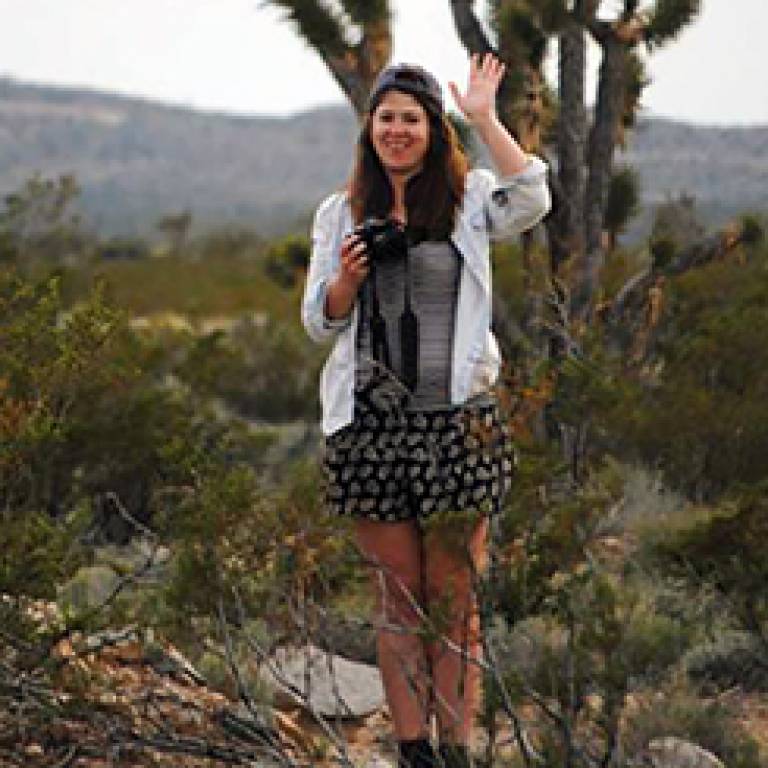Seven questions with Fiona Spooner
8 March 2017
This week, meet Fiona Spooner, a postgraduate student in the third year of her conservation biology PhD, who has some helpful advice for undergraduates hoping to pursue a research career.
 Fiona's research is focused on why climate change and the loss of natural
habitats have contributed to animal population declines.
Fiona's research is focused on why climate change and the loss of natural
habitats have contributed to animal population declines. Tell us more about your research project:
I'm in the third year of a conservation biology PhD with the London Natural Environment Research Council Doctoral Training Partnership. I'm based partly at UCL and partly at the Institute of Zoology, the other side of Regent's Park at London Zoo.
The analysis of my current project is based on data from the Living Planet Database, which is a huge database of over 18,000 animal population trends. This is a hugely valuable resource for understanding the status of the world's animals.
The recently published Living Planet Report showed that on average we lost 58% of animal populations between 1970 and 2012 and this is predicted to increase to 67% by 2020, which is pretty scary.
My research focuses on understanding how climate change and the loss of natural habitats has contributed to animal population declines and how much we can expect future climate change to influence animal population trends over the coming century. It's not looking good.
What makes it so important (and interesting)?
I
think it is really important that we understand why the number of animals on
the planet has decreased so much, in a relatively short time. The obvious
answers are that we are either over-exploiting them or destroying their
habitat. However, it is less obvious what the effects of climate change will be
in terms of animal abundance.
Climate change is likely to become an increasingly important factor on most if not all aspects of the environment, and it is likely to exacerbate existing threats such as natural habitat loss.
If we can understand the influences on animal population trends then we become better equipped to stop these population declines, which if left unattended would inevitably lead to species extinctions.
What has been a personal highlight so far?
I have really enjoyed the teaching work I have done, it's really refreshing to get away from the desk and to meet undergraduate and Master's students. Talking to them and helping them develop their work helps me think about mine from a different angle. I also find that explaining your work to other people helps you think about it more clearly.
Explain some of the challenges involved in working on a research project.
I think the biggest challenge is staying motivated, a PhD is definitely a marathon and not a sprint. It can be frustrating when you think you have almost finished a task only for something to go wrong and it takes you weeks or months to figure out why. But doing a PhD is all about learning new skills, so that next time you face that particular problem you can figure it out much more quickly.
What advice would you give to an undergraduate student hoping to pursue a research career?
Learn
how to code! I think if you want to pursue a research career in science coding
is pretty much inescapable. There are plenty of free online courses out there.
Also, try and get some relevant experience in the area you want to work in, but make sure it is worthwhile for you and ensure that you are learning new skills and gaining new experiences.
Any idea what's next after the project finishes?
I've
still got another couple of years before I finish my PhD, so I haven't thought
that far ahead yet. The next project
within my PhD will be looking at particular species and trying to understand in
more detail how their populations are affected by climate change and land use
change.
For example, does climate change cause a decrease in birth rates or an increase in death rates or something else entirely?
Describe your perfect evening (or weekend) after a long week.
It's always good to get out of London for the weekend and explore a new area of the country.
 Close
Close

